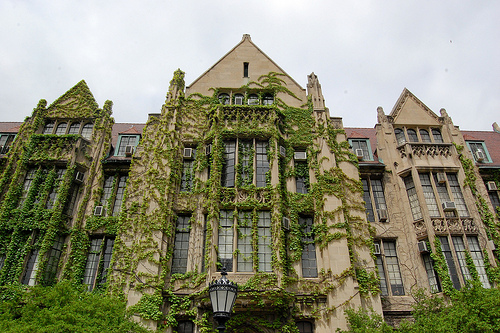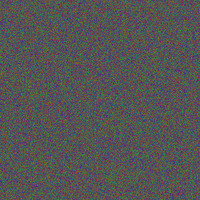Third Chicago Summer School In Analysis
June 13th - June 24th, 2016


This is the third series of NSF funded summer schools in analysis at the university of Chicago. It intends to introduce advanced undergraduates as well as beginning graduate students to a broad range of topics which are important to modern analysis. This includes Partial Differential Equations, Probability and Stochastic Analysis, Harmonic Analysis and Geometric Measure Theory. The program focuses on foundational material, and should be accessible to undergraduate and graduate students with a solid background in multivariable calculus, complex variables and Lebesgue integration.
Organizers: M. Csornyei, C. Kenig, R. Fefferman, W. Schlag, P. Souganidis.
Check the poster. For questions, write to chicagoanalysis@math.uchicago.edu
If you want to participate in this summer school, please register here. Financial support (travel expenses, local accommodation and meals) will be available to some highly qualified applicants. Per NSF regulations, funding is restricted to US citizens and permanent residents. Housing will be available in the university dormitories only for those participants receiving financial aid. Participants who do not qualify for financial aid will be responsible for their own accommodations. The deadline to apply for financial support is on March 31st.
Schedule of lectures  New!
New!
All lectures take place at room 112 in the Stevanovich center.

Minicourse by Marianna Csornyei.
On Kakeya and related problems. description
Minicourse by Carlos Kenig.
The method of layer potentials for solving the basic
boundary value problems for harmonic functions on smooth domains. description
We will develop the classical method of layer potentials for smooth domains in R^n, to solve the Dirichlet and Neumann problems for harmonic functions, using the Fredholm theory. Historically, this is what led to the invention of Fredholm theory.
Minicourse by Robert Fefferman.
Some Highlights in the Classical Theory of Fourier Series. description
This will be a relatively self-contained class on Fourier series. We shall investigate the basic properties of these series, as well as their convergence and divergence properties. In so doing, we shall discuss how the analysis of Fourier series relates to central areas of mathematics such as functional analysis, complex analysis and probability theory.
Prerequisites: A knowledge of Lebesgue measure and elementary complex analysis.
References: Trigonometric Series, A. Zygmund; An Introduction to Harmonic Analysis, Y. Katznelson.
Minicourse by Wilhelm Schlag.
Introduction to hyperbolic PDEs. description
The course will be an introduction to wave equations. We will discuss d'Alembert's formula, fundamental solutions in dimensions one and three, energy estimates, finite speed of propagation and light cones. For nonlinear problems we will present Klainerman's vector field method to prove long-time or global existence results for small data.
Minicourse by Charles Smart.
Stochastic Differential Equations. description
I will discuss ordinary differential equations driven by Brownian motion and some elements of rough path theory. I will assume knowledge of real analysis and some basic probability theory.
Minicourse by Panagiotis Souganidis.
Introduction to entropy and viscosity solutions. description
The course will cover the classical theory of scalar conservation laws and Hamilton-Jacobi equations (method of characteristics) and will introduce the notions of entropy and viscosity solutions.
These activities are financed by the University of Chicago RTG grant (DMS-1246999).
Any opinions, findings and conclusions or recomendations expressed in this material are those of the author(s) and do not necessarily reflect the views of the National Science Foundation (NSF).